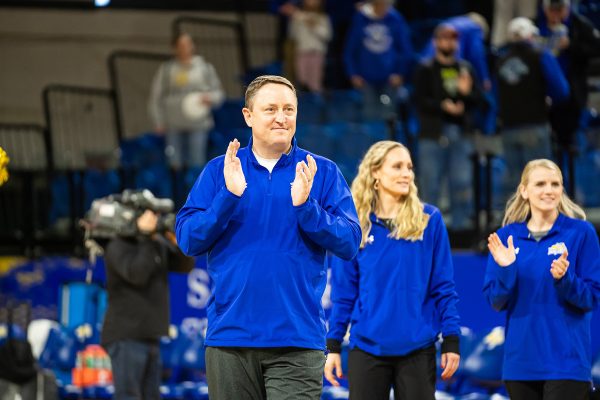Speakers highlight tribal issues
October 4, 2004
Dana Verlinde
The 16th Annual Consider the Century, “Native American Perspectives on the Past 100 Years” was held in the Performing Arts Center on Friday.
Four Native American speakers addressed current topics for about an hour apiece.
One of the speakers was Tex Hall, the chairman of three affiliated tribes in Fort Berthold, North Dakota which include: Mandan, Hidatsa and Arikara Nation. He was elected President of the National Congress of American Indians in 2001.
He led the fight for the protection of tribal sovereignty and has been the most out- spoken and active voice for tribal rights in Washington D.C., where he has testified before Congress a record 60 times.
He addressed issues concerning the significant growth of Native Americans since the 1800s such as cultural contributions, military service, self-determination, tribal sovereignty, and the Homeland Security Act, which does not include tribes, during his speech.
“To think about your own self and where you are going. Always think about the next generation,” Hall told the audience.
When Hall was elected chairman of his tribe’s council, he immediately put to work the lessons of hard work and education he learned while growing up.
He has delivered an economic turnaround for his tribe, and cut the unemployment rate from 50 percent to just under 15 percent. He has also helped create more than 300 new jobs on the reservation.
In 1999, he chaired a historic meeting with former President Bill Clinton and the Great Plains Tribe at the White House. He has created a new Head Start initiative to increase positions at tribal schools.
The other speakers included Lenora Hudson from the Oglala Sioux Tribe. She is an instructor of American Indian Studies and an SDSU Rural Sociology Department doctoral candidate.
Kim TallBear is from the Sisseton-Wahpeton Oyate. She is a doctoral candidate from the University of California-Santa Cruz in the history of consciousness program.
David Larsen is from the Lower Sioux Mdewakanton, and is a historian and a Dakota educator.
The program sponsors for the event were the South Dakota Humanities Council, SDSU Native American Club, SDSU English Department, the SDSU Journalism Department and the Brookings Area Reconciliation Council.
























